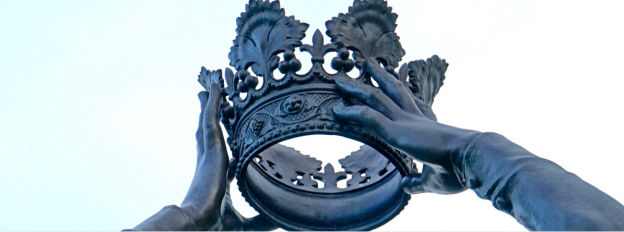Summary
Victories come for a variety of reasons. Sometimes, superior technology and technique. Sometimes, superior strategy and tactics. Sometimes, superior numbers. In some way, these victories occur because of superior strength. For God’s people, our victory is found not in superior numbers or more cunning cultural engagement, but in the strength of God who is supreme over all.
Psalm 21 expresses the praise of God’s people for their victory in God’s strength. God provides the requested help to their king (Psalm 20), and provides the victory. So God’s people praise God for his victories of old, the victories they trust will come, and for God’s power.
Our passage explained
v1-7
The psalm begins with praise for God’s victories of old (vv.1-7). God’s people praise The LORD because in his “strength the king rejoices, and in [his] salvation how greatly he exults!” (v.1). God had answered his prayers as he went out to battle, and “given him his heart’s desire” nor “withheld the request of his lips” (v.2).
The psalm describes the blessings given to the king by God’s victories. Using a picture of the king returning from battle, God is said to “meet him with rich blessings” and place his crown back on his head (removed during battle) (v.3). He asked that his life would be spared which God granted, and gave him “length of days forever and ever” – long life, considered a blessing in David’s day (v.4).
Through salvation on the battlefield, the king is described as receiving “splendour and majesty” (v.5), reflecting God’s attributes as his divinely appointed ruler. He receives “blessings forever” and the joy of knowing God’s presence (v.6), demonstrating God’s commitment to his covenantal promises to David (2 Samuel 7). This is emphasised by verse seven, which describes how the king trusts God, and will not be moved or shaken because of God’s covenant love and loyalty (“the steadfast love of the Most High”).
Psalm 21 transitions from God’s past victories to praise for God’s victories to come. Addressing the king, the psalm describes the victories God will work through him. This is described in language of curses on the nations which oppose God and his people.
v8-9
In verses eight and nine, the king’s enemies perish. The king will “find out all your enemies …those who hate you” (v.8). When he finds them he will “make them as a blazing oven” and God will “swallow them up in his wrath, and fire will consume them” (v.9). Much like a blazing hot oven consumes everything in it, so too God’s judgement handed out by the king will destroy all his enemies.
v10-13
The destruction is then described as being a complete, comprehensive one. The victory will be so complete that the king “will destroy their descendants from the earth, and their offspring from among the children of man” (v.10). Losing your descendants was a customary curse in that time, and reflects the idea that there will be nobody left to avenge the enemies’ defeat.
Their defeat will be so comprehensive that despite their plans and mischief, they will not succeed (v.11) because God will frustrate their plans. The king will “put them to flight” when his bowmen fire their arrows (v.12), because of God’s intervention on his side.
The psalm concludes with praise for God’s power. “Be exalted, O LORD, in your strength! We will sing and praise your power” the people proclaim (v.13). They ask God to reveal his power and glory, and for all to see that God alone is exalted above all earthly powers. The victories of past, present, and future are the works of God’s hand. It is God who deserves the credit for victory.
Our passage applied
Much like Psalm 20, on its face it is difficult to understand how a psalm about military victories relates to the Church today. We do not have standing armies, or enemy nations we fight. But as we considered with Psalm 20, we do wage war against sin, and against the powers of darkness.
What this psalm reminds us of is that victory in our battle against sin is not won by us, but by God. It is Christ who crushed the serpent’s head (cf. Genesis 3:15) when he bore the punishment for our sins on the Cross, and rose again from the grave to defeat death. Christ is our king, blessed with a crown on his head and length of days forever, sitting at God’s right hand.
The Cross was the decisive victory over Satan, and over sin and death. Now God is advancing in battle against the armies of darkness, as the Kingdom of God expands until one day all enemies are put under Jesus’ feet. The Holy Spirit works in our lives to defeat sin, sanctifying us. No nation, people, spiritual power or principality can resist God’s hand. Even sin and death will one day be finally and comprehensively defeated.
So like God’s people in David’s day, we can sing Psalm 21 praising God for his strength and power, giving victory.
Resources
Questions? Please contact us. Inspired? Come and worship with us on Sundays.

